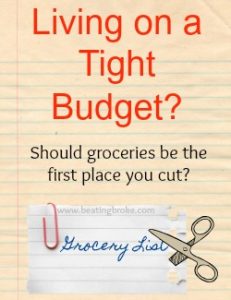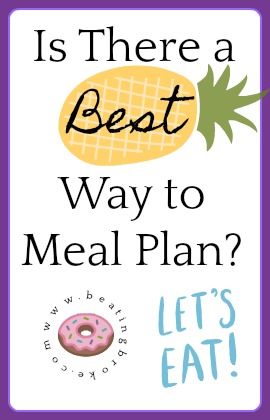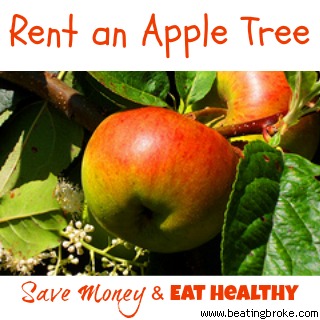If you’re like me, the last few years, you may have felt that you’re simply treading water when it comes to income and expenses. It seems every time our income goes up, our expenses go up, and I’m not talking about lifestyle inflation but rather insurance premiums and deductibles, etc.
Like many people, I try to cut corners to make our money stretch as far as I can. I’ve certainly had times a few years ago when I bought the cheapest groceries that I could find by using coupons and sales, even though the food was processed and not that good for my body.
I rationalized that I was being frugal, and, I’ll admit it, I was proud of myself. Never mind that we were eating casseroles that we didn’t really like made with processed foods or that the leftovers often went to waste because we didn’t want to eat the meal again. Never mind that both my husband and I had cholesterol well over 200 even though we were in our thirties.
Change in Eating Habits
However, over the last few years, my opinions on grocery shopping, the foods we eat, and how to save money have changed. I still like to save money (and I still need to in order to make our budget stretch), but now I do it differently, and I feed my family differently. A few years ago, I went Paleo. I dropped a lot of weight, and my cholesterol level settled around 155, even though I was a few years older. True, our grocery budget went up, but not by as much as I expected. I learned ways to buy healthy food at a reasonable price.
Where Else Can You Cut Besides Groceries?

Sometimes, especially when money is tight, groceries seem like an easy place to cut. Convenience foods bought with coupons can be had for a steal. Take a look around Pinterest, and you’ll find many posts of bloggers touting how little they spend for groceries.
But is this a good thing? I know groceries are typically one of the largest monthly expenses for a family, but should this automatically be the place we look first to reduce our budget? After all, there is great truth in the adage, “Pay your farmer now, or pay the doctor later. In fact, “Americans spend nearly 20% of their income on healthcare costs, while on average spending 10% of their income on food. . .Considering the age-old adage, ‘an ounce of prevention is worth a pound of cure’ may be the first step to attempt to reduce healthcare spending—and the key place to start is food consumption. If you start to consider your diet a form of preventative health care, you might start rethinking your daily meals” (University of New Hampshire).
Take a look at your budget. If you don’t automatically slash your grocery budget, where else can you cut expenses?
If you don’t short change your body healthy foods, you’ll save thousands on health care later on. Meanwhile, why not consider dropping your smartphone and getting a “dumb” phone? (Yes, I still have a flip phone for emergencies that we bought 10 years ago.) Can you drive your current vehicle a little longer so you don’t need to have a new car loan? Can you drop cable? Do you have subscriptions you’re paying for but you don’t use? Likely, there are several lifestyle choices you can make to cut your expenses without compromising the quality of food you can buy and eat.
Do you cut other expenses so you can continue to buy quality foods, or do you prefer to slash your grocery budget?
Melissa is a writer and virtual assistant. She earned her Master’s from Southern Illinois University, and her Bachelor’s in English from the University of Michigan. When she’s not working, you can find her homeschooling her kids, reading a good book, or cooking. She resides in New York, where she loves the natural beauty of the area.


